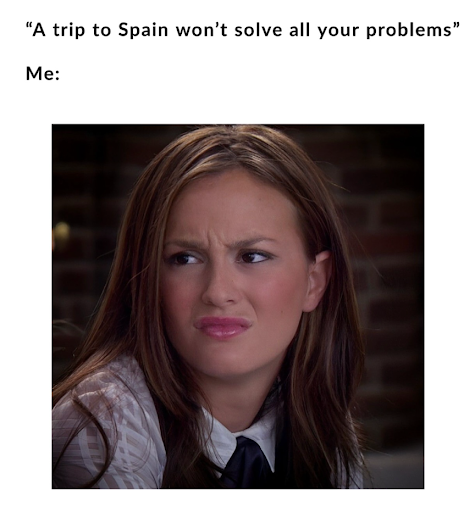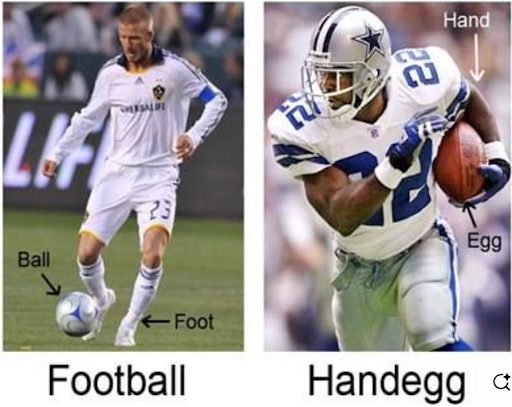 Summer is finally here! And if you're one of the lucky ones headed to Europe on vacation (is it just me, or is everyone going to Greece or Italy these days?), here's a little guide from someone who grew up there and now lives in the U.S.
Summer is finally here! And if you're one of the lucky ones headed to Europe on vacation (is it just me, or is everyone going to Greece or Italy these days?), here's a little guide from someone who grew up there and now lives in the U.S.
Privacy and security aren’t just rules in Europe, they’re habits, part of the culture. They show up in the small moments: how we pay, what we share, or how we share it. So here’s your friendly guide to navigating European culture, privacy, and everything in between.
First Things First: Keep Your Card With You
One of my first culture shocks in the U.S. was watching servers walk away with my credit card. In Europe, that’s a no. Servers bring the card reader to your table, and your card never leaves your sight. This small difference reflects a different cultural mindset: data and financial info should stay close and protected.
And no, you won’t be asked “do you want to close the tab or keep it open?” at a bar. You order what you want, and pay for everything at the end. If it’s a pub or disco, you’ll pay for each drink on the spot, not giving your card to the server. Also: always carry coins (50 cents or a euro) for the bathroom. Street bathrooms often charge, and some clubs or venues have attendants offering tissues or perfume for a small fee. (If you watched Emily in Paris, you might remember the episode with “la dame pipi.” It’s real!)
But, as private as we Europeans are, we are also masters in pickpocketing (Rome and Barcelona are known for this…), so keep your wallet and card, and phones, safely hidden.
You Might Be Sharing Less Than You’re Used To
If someone in Europe asks for your national ID card (like a Social Security Number), outside of hotels or car rentals, something’s gone wrong. Personal data is treated very cautiously, and definitely not requested on casual forms. Even socially, people tend to share information more slowly. You won’t be asked where you work, where you live, or how long you’ve been married. These details will flow into the conversation, if it comes to it.
You’ll also find that websites take data collection more seriously. Thanks to the GDPR (General Data Protection Regulation), you’ll be asked for your consent before a website drops cookies on your device, and “no” is a real option, not just a hidden link! Additionally, the pharmacist will never ask for your name and DOB when picking up your prescription, and you won’t be receiving thousands of calls from money lenders when you are trying to purchase a house.
Prices Make Sense, and So Does Food
One of the small joys of Europe is that when a shop sign says 8.99€, you pay 8.99€. Tax is included in the price, so you’re not doing mental math at the register. It’s oddly satisfying.
Oh, and if you’re from outside the EU, you might qualify for a VAT (Value Added Tax) refund on certain purchases when you leave. Just save your receipts and ask the shop how it works. It can be worth it.
Lunch isn’t just a quick refuel; it’s a social ritual. Especially in Southern Europe, lunch can turn into a three-hour affair with wine, dessert, and deep conversation. It’s not rushed, and it’s not optional. And tipping? It’s minimal. You might round up your change or leave a euro, but it’s not expected. Servers aren’t working for tips, so don’t be surprised if service is polite but not overly friendly; they’ll come when you call, not hover around.
No, You Can’t Wear That
This might sound dramatic, but it’s very real: fashion is a state of mind, and the judgment is real. Sweatpants for a quick grocery run? Someone might ask if you’re headed to the gym. If not, they’ll wonder why you're dressed like that. It goes further than that; the majority of establishments won’t allow you to enter with certain casual clothes or shoes. You can even get fined for walking or running shirtless.
Public Transport, Passport Checks, and Sports
Public transportation is efficient, clean, and connects small towns across countries, so you probably won’t need a car (but if you rent one, double check that it’s automatic, most European cars are manual by default). Once you land in the EU, traveling between countries is like going from Maryland to West Virginia; no border drama, just trains and buses. You can keep your passport safe in your luggage.
And yes, you’ll be watching football. Not the American kind, the real kind. Matches are on TV at nearly every café, and people have strong opinions. You don’t need to join the debate, but knowing who’s playing might help you blend in.
A Final Thought
Europe offers a different kind of rhythm: older towns, more privacy, slower meals, smaller cars, stronger coffee, fewer small talk questions, more public transport… It’s all part of the charm.
Enjoy the trip, feel free to reach out if you want tips (or good places to eat if you go to Spain!), and let’s all agree on one thing: American Football should be called Handegg. IT. MAKES. SENSE.

